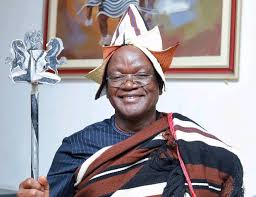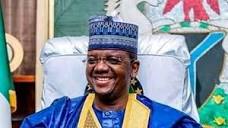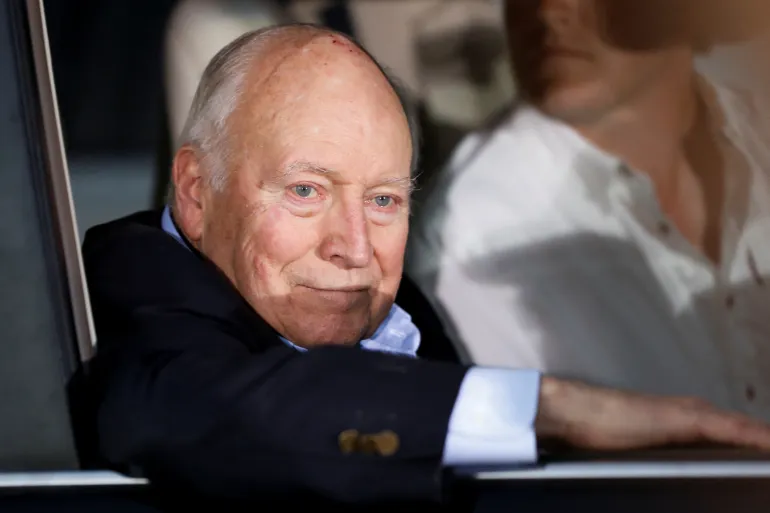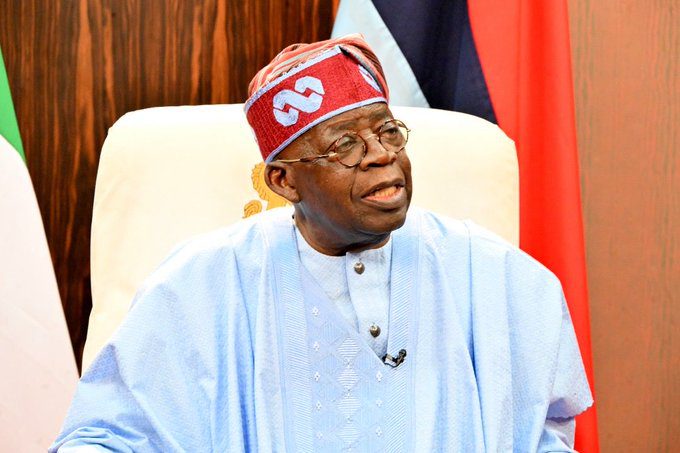By Tunde Olusunle
For avid followers of Nigeria’s sociopolitics, the name Samuel Ortom regularly hums in the ear like the droning rhythm of the busy bee. The man who has been governor of Benue State for almost eight years, is outspoken, fearless, even daring. He is never shy of intruding into the tooth-picking, complacent comfort zones of those whose actions and inactions, have made life unbearable and un-liveable for our people. Their kinsmen superintend over swathes of the national landscape, rendering them ungovernable. Ortom has been a gadfly, a consistently loud voice on issues of insecurity in his state and indeed in the entire Benue trough. His reactions to the murderous, blood-spilling preoccupation of marauding Fulani herdsmen who have serially violated the peace, quiet and pristine equilibrium of simple agrarian folks in the state, have brought him into regular collisions with the establishment.
He has tirelessly voiced his grief and helplessness about the relentless activities of the cattle-herding nomads, who have illegally arrogated to themselves, the nation’s infinite national flora as unfettered grazing ground. It has become pastime for the aggressors to invade unsuspecting communities typically under the cover of night. To loan the popular Biblical quote from John 10:10, the itinerant Fulani, “cometh not but for to steal and to kill and to destroy.” This trend has compelled aborigines to flee their homelands and to seek refuge in spawning camps for Internally Displaced Persons, (IDPs). Such impromptu infrastructures dot the torso of the nation’s renowned number one grower of food in the country. The crowded, spilling, inconvenient camps, it has been suggested, hold numbers in the region of a million IDPs. That the camps have largely survived devastating epidemics remain a contemporary mystery. This is even as the numbers of those uprooted from their homelands, continue to balloon. New joiners in the forms of newly dislocated persons and newborns sired under such intolerable circumstances, have swelled the tallies.

Visits to scenes of the invasions and desecration of the pristine abodes of his people and tours of various medical facilities where victims are managed, have become constants on Ortom’s official itinerary, inevitably and unfortunately. Having to arrange and fund the internment expenses of many of his constituents, felled by the herdsmen rascals has been a most unpleasant fixture of his governance regimen. With static fiscal accruals to the state from the national till, Ortom has depended on the goodwill of colleague governors and public-spirited individuals and organisations, to augment material provisions for the management of the IDP saga. The development has indeed become a cost item on the financial spreadsheet of the Ortom government.
In his hands-in-the-air consternation, Ortom expected the unambiguous denunciation of the trend from the highest levers of state administration. He anticipated specific directives from the Commander-in-Chief to his troops to deal decisively with the ogre. Ortom sought audience with the president a few times so as to brief him about the niggling situation in his state to no avail. He thus came off with the impression that a conspiracy by senior members of the administration of President Muhammadu Buhari who are from Benue State, had culminated in his being shielded from the nation’s chief executive. A miffed Ortom surmised that the central government, constituted by the political party to which he belonged in the early years of the security situation in his state, the All Progressives Congress, (APC), could not be bothered to mitigate the quantum emergency he was contending with. He took his fate in his own hands and decamped to the opposition Peoples’ Democratic Party, (PDP), to seek a second term as governor. The line had been drawn in the relationship between Ortom and the federal government therefore.
Much as he was a “returnee” to the PDP, Ortom sustained his capacity for vitriol. He has relentlessly tackled the leadership of the party on issues he feels very strongly about. At various times, he has spoken about the imperative for internal democracy at the several rungs of the political structure of the party. He has advocated inclusiveness, equity and balancing. Ortom chaired the PDP committee which opted for the “borderless zoning” of the presidential ticket of the party, early 2022. This implied that aspirants from every geopolitical section of the country could aspire for the ticket of the nation’s number one office. Nigeria’s former vice president, Atiku Abubakar beat about half a dozen other aspirants to clinch the ticket at the primary held late May 2022.
Ortom in concert with four of his colleagues, Nyesom Wike, Seyi Makinde, Ifeanyi Ugwuanyi and Okezie Ikpeazu, of Rivers, Oyo, Enugu and Abia, teamed up to constitute a group known as G-5. They mandated themselves to press for a North/South balance between the office of the national chairman of the party and the presidential candidate. Since Iyorchia Ayu the chairman hailed from Benue in the north central, it was expected he would step down like he promised before the primary, and be replaced by a southern chairman since Atiku comes from Adamawa in the north east. Ortom would become a very vocal member of the quintet, and pulled no punches in his engagements on the subject. He riled severally at Atiku and the Fulani ethnocultural stock in general, arising from his bottled-up anger about the irreparable damages being committed by them against his people.
Governor Ortom by the way has been my friend for a while now. Our relationship developed at the instance of his chief of staff, Tivlumun Nyitse, who has been my brother since my first day in the university back in 1982. The educational course and professional careers of Nyitse and I have followed similar trajectories in every material particular. We both studied English and regularly sat next to each other all through our years in university. We graduated the same year in 1985. We variously worked as teachers during the early years of our post-graduation occupational ventures. We pursued our passions in journalism where he worked with the sadly now defunct National Concord newspapers, while I sought fulfilment in the primordial Daily Times of Nigeria. Nyitse and I both served as directors of press affairs and chief press secretaries to strings of civilian governors and military administrators in our various states, Benue and Kogi, between 1992 and 1999.
Nyitse subsequently joined the bureaucracy in his state, rising to the position of permanent secretary. This was before his voluntary retirement in January 2014, to pursue his ambition to be governor of Benue State. I served in several portfolios as an aide to former President Olusegun Obasanjo, between 1999 and 2007, and took a shot at the senate in 2011. Nyitse obtained a doctorate in mass communications, while I earned my doctorate in media arts. The various congruences between the profiles of Nyitse and I are indeed the stuff of a fairy-tale. Ortom indeed took me up for working for Atiku during the latter’s robust and recent presidential quest, following from he, Ortom’s position on the Fulani question. I methodically explained to him that I had been an Atiku aficionado even before our “Aso Villa” odyssey beginning from 1999. Ortom understood and the relationship between him and I, therefore, was not impacted.
Days after his anti-Atiku vituperation at a banquet he held in honour of his G-5 allies in Makurdi last November, Ortom demonstrated penitence, by apologising if his declamatory outburst against the Fulani nationality and Atiku, was misunderstood. That act was notably statesmanly. Ortom who visited the Bauchi State governor, Bala Mohammed with his G-5 friends after his “Makurdi vituperation,” was interviewed by pressmen about his comments on the Fulani/Atiku subject days before. Point is that Ortom needs to be understood within the context of his being a leader who had been so relentless and thoroughly worsted and frustrated by the virulence and viciousness which nomads have sustainably unleashed on his people through the seasons. He is human by the way, and as such is entitled to emotionalism from time to time.
Tuesday March 28, 2023, Ortom shocked many in yet another display of statesmanship. He announced the withdrawal of his election petition, over his loss of the Benue North West Senatorial position to the candidate of the APC, Titus Zam, at the Saturday February 25, 2023 polls. Ortom noted that he exited the case in the interest of peace and brotherliness. He observed, however, that his action was without prejudice to the litigations filed by other candidates of the PDP at various levels. Ortom spoke after he met with the campaign team and stakeholders of his parliamentary quest. Famous for his frequent recourse to the Holy Bible, Ortom noted that his decision was informed by the expression in the Book of John 3:27, which says: “A man can receive nothing except it is given to him from heaven.”
Ortom who has been an active participant in the politics of his state for several decades, expressed appreciation to God and to the people of Benue State for the several opportunities he has had to function in various offices and capacities. Ortom’s words: “The grace of God has taken me to key positions at the local, state and national levels, within which I was a local government chairman, state secretary, state deputy chairman and national auditor of PDP. I was minister of the Federal Republic, and I am presently serving out my second term as governor.” Ortom observed that he couldn’t have trodden these paths without getting on the wrong side of some people. He said: “For those I might have offended in this journey of serving our state and country, I seek their forgiveness. This is as I also forgive those who have offended me.”
In a nation famous for elite arrogance at various levels, Ortom has displayed striking statesmanship, an action which should not be thrown under the carpet. The average African politician is haughty and all-knowing. His carriage is denominated by prototype nose-in-the-air arrogance, while viewing others with unfounded contempt and derision. Ortom whose story of ascendancy from the valley to the hilltop has been told and retold, desires to return to status quo ante. He desires to return to his pre-public office personality. He wants to be his previous simple, unassuming self after office, savouring luam with ashwe, adenger and other home-made soups in commonality with friends and folks. He craves to be back to earth with his constituents and comrades, shorn of the isolationist tapestries of office and power. Ortom has just reaffirmed, by his recent gestures, this burning desire, courtesy of his recent narratives and body manifestations.
Tunde Olusunle, PhD, poet, journalist, scholar and author is a Member of the Nigerian Guild of Editors, (NGE)
.




